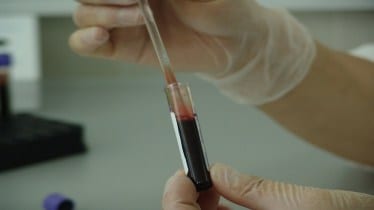A team of researchers at the University of East Anglia have helped in developing a new blood test to detect prostate cancer with greater accuracy than current methods.
New research shows that the Prostate Screening EpiSwitch (PSE) blood test is 94 percent accurate. According to scientists, this beats the currently used prostate-specific antigen (PSA) blood test.
The research team says that the new test shows significant potential as an accurate and rapid cancer screening diagnostic.
The test was developed by Oxford Biodynamics in collaboration with UEA, Imperial College London and Imperial College NHS Trust.
“Prostate cancer is the most common cancer in men and kills one man every 45 minutes in the UK. There is currently no single test for prostate cancer, but PSA blood tests are among the most used, alongside physical examinations, MRI scans and biopsies. However, PSA blood tests are not routinely used to screen for prostate cancer, as results can be unreliable. Only about a quarter of people who have a prostate biopsy due to an elevated PSA level are found to have prostate cancer. There has therefore been a drive to create a new blood test with greater accuracy,” Prof Dmitry Pshezhetskiy, from UEA’s Norwich Medical School, said in a statement.
The UEA team evaluated the new PSE test, which combines the traditional PSA test with an epigenetic EpiSwitch test, in a pilot study involving 147 patients.
The researchers compared its results with those of the standard PSA test – and found that PSE significantly enhances overall detection accuracy for at-risk men.
“When tested in the context of screening a population at risk, the PSE test yields a rapid and minimally invasive prostate cancer diagnosis with impressive performance. This suggests a real benefit for both diagnostic and screening purposes,” Prof Pshezhetskiy stated.
The findings of the study are recently published in the journal Cancers.
